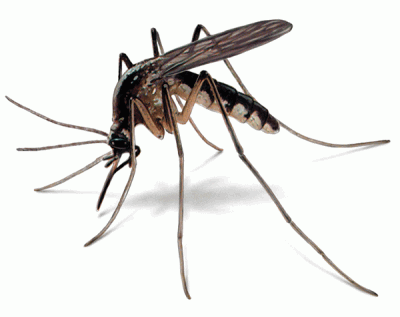Genetically Engineered Bitting Insects: GE Mosquitoes? Tell FDA No!

Imagine a company releasing millions of experimental, genetically engineered, biting insects into a populated island environment. Sounds like the plot to a new Jurassic Park, doesn’t it? Unfortunately, this plot is very real, and it will happen unless we stop it.
Our environment should not be a testing ground for experimental genetically engineered (GE) mosquitoes. But if approved, millions of genetically engineered mosquitoes could be released into the Florida Keys, for the first time in the U.S.
Why would anyone want to do this? Oxitec—the creator of the GE mosquitoes—claims that their GE mosquitoes might help reduce the spread of diseases like zika and dengue by reducing mosquito populations.Reducing the spread of mosquito-borne diseases is important, but independent scientists have critiqued the GE mosquito as a potentially ineffective and risky attempt to address dengue. There are flaws in Oxitec’s experimental logic; for example, there have been no dengue fever cases in the Florida Keys since 20091 and the Center for Disease Control notes that there is not data from any of Oxitec’s other trials that show a reduction in diseases.2 Even a great reduction in these mosquitoes still leaves enough mosquitoes in peoples’ homes and backyards to spread disease.

Oxitec, owned by synthetic biology giant Intrexon, which also owns the GE apple and GE salmon, has proposed moving this experiment from the lab into the Florida Keys, without adequate understanding of the impacts. We need to tell FDA that it should not approve this risky experiment. We need independent environmental and health safety assessments and strong regulations to protect people and the environment before these, and other, GE insects are released into living ecosystems.
Scientists have significant concerns about how GE mosquitoes could impact the health of people and of critical ecosystems. Once released into the environment, this new, living engineered organism cannot be “recalled”; GE mosquitoes could reproduce and cause unintended changes in the ecosystem.
Despite being a brand new type of invention that poses new types of risk, the U.S. has not created new regulations for these genetically engineered insects; the government is using existing regulations meant for “new animal drugs” like cow vaccines.3 The FDA needs to establish strong, updated regulations before any GE mosquitoes swarm our environment.
Unfortunately, this is just the beginning. If Oxitec is allowed to release its experimental GE mosquitoes without responsible oversight and understanding of impacts on human health and the environment, it will set a dangerous precedent for other GE insects in the pipeline, including moths and flies.
The environment, including our homes, should not be a testing ground for risky new GE technologies. Our government agencies must not rely on companies that would profit from genetically engineered organisms to decide what information the public and regulators should know. We must demand independent, transparent safety assessments, answers to our questions about impacts to the environment and health, and a regulatory system equipped to deal with the novel risks from these experimental mosquitoes before they are released from labs into our environment.
Tell the FDA to not approve this experiment!
References:
1. Centers for Disease Control and Prevention. Locally acquired dengue—Key West, Florida, 2009–2010. MMWR Morb Mortal Wkly Rep 2010;59:577.
2. See testimony of CDC’s Dr. Tom Frieden to the House Energy and Commerce Committee. http://docs.house.gov/meetings/IF/IF02/20160302/104594/HHRG-114-IF02-Transcript-20160302.pdf see page 43 where Frieden says: “ The other thing that’s very important to understand is, this mosquito is so tricky that even when we’ve seen very large knockdowns in mosquito populations, we haven’t necessarily seen commensurate reductions in human infections, so it’ll be important to look at both of those factors.” Even Oxitec does not say that the trial is to reduce disease, but rather to see if they can reduce populations of the Aedes aegypti mosquito.
3. See http://www.fda.gov/downloads/AnimalVeterinary/GuidanceComplianceEnforcement/GuidanceforIndustry/UCM113903.pdf Note that in June 2015, the FDA eliminated from this guidance the requirement for a public hearing before approval of a new GE animal or insect.

